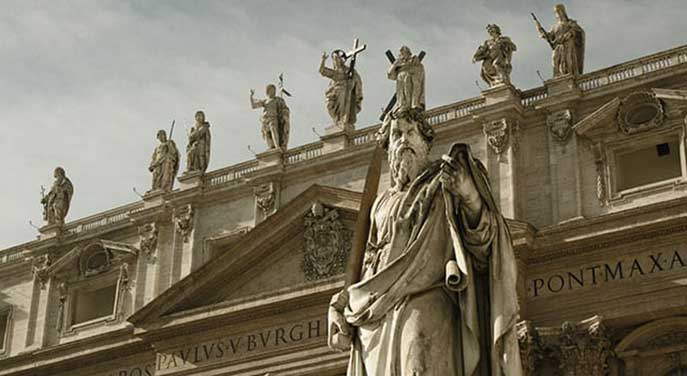The West is blamed for many of the ills of modern society, so why is it a haven for so many?
 Western civilization is constantly under fire these days, accused of causing many of the ills that affect modern society.
Western civilization is constantly under fire these days, accused of causing many of the ills that affect modern society.
Many blame aggressive Western capitalism for generating a culture of greed and destroying the environment. Indeed, the most hurtful criticism of the West relates to imperialism. Admittedly, the West has been expansive over the past few centuries (to put it politely) and, as such, stands accused of naked aggression, colonialism and fostering an undeserved sense of superiority among ‘whites.’
The list of accusers is long. Former Third World nations (like Bangladesh), indigenous First Nations communities, and even rising stars like China are united in their condemnation of the West. Ironically, many Westerners share these sentiments.
At the same time, however, Western nations are the preferred destination for millions of individuals around the world escaping tyranny, poverty and despair.
So, what explains this Western paradox?
Perhaps there are some clues in the history of the West that can shed some light on these obvious contradictions.
The Roman Province: The West began its life as a province of the Roman Empire. Romanization helped forge the character of the West at its birth, and Rome’s influence continues to cast a light over Western life and culture today.
The Celtic peoples who inhabited Western Europe before the Roman invasion stretched from Britain to modern-day Turkey. The Celts were semi-nomadic kinship-based clans; they had loosely defined traditional territories, grew crops on rudimentary farms and organized themselves on a tribal basis. The Celts were brave warriors with a ruddy streak of independence who lived lives similar to indigenous communities in America a few centuries ago.
All was relatively settled in the Celtic world until the arrival of Julius Caesar. In 59 BCE, at the time of the Roman invasion, there were upwards of five million Celts. Alas, the Celtic warriors were no match for the military prowess of Caesar’s famous Legions.
After five seasons of Roman victories, a last effort was made to dispel the Romans. Vercingetorix, the Celtic Chief of Chiefs, raised a massive force to defeat Rome. Although his efforts were initially successful, the tide of battle turned, and all was lost following the return of Caesar to the area.
The Impact of Rome on the West: The Roman conquest was brutal; 300 clans were subjugated, 800 towns and villages were destroyed, including the entire population of Avaricum (Bourges), while hundreds of thousands of Celtic men, women and children were sold into slavery. Vercingetorix, for his part, was publically humiliated and then murdered in the coliseum at Caesar’s Triumph in Rome.
Ironically, despite the viciousness of the military conquest, Rome revolutionized the West, and, within a few centuries, the formerly subjugated peoples of the West would adopt the culture of their overloads and proudly portray themselves as the ‘new Romans.’
What happened to affect this remarkable transformation?
Of all the cultural elements Rome introduced into Celtic tribal life, three stood out above the rest:
- Romanization introduced the Celts to a common language (Latin)
- a common religion (Roman Catholic) and
- most importantly, civil law.
Before the Roman invasion, the Celts had no solid legal rights. Indeed, Celts proudly proclaimed: To the brave belong all things. The net effect of this tradition was despotic rule by Kings and nearly constant inter-tribal conflict.
Pax Romana brought peace and order to the West. Roman law, particularly Jus civile and jus privatum, created the legal means for individual Celts to own private property. The Roman judicial system also provided the means for those rights to be transmitted across tribal boundaries. Fortified by these new rights, the Celts plunged vigorously into trade and commerce, profiting greatly.
Roman influence has left an indelible mark on Western culture. Many of the West’s present virtues came from Rome, including its foundational belief in individual rights, private property, and the Law.
Alas, Rome’s influence is also responsible for many Western vices. After all, it was Roman imperialism and the fact of their conquest that first elevated the Celts. This influence lives on today. Although actual military conquest has fallen out of favour, cultural and economic imperialism continues to play a key role in what many Westerners believe is their historical mission.
Robert McGarvey is an economic historian and former managing director of Merlin Consulting, a London, U.K.-based consulting firm.
For interview requests, click here.
The opinions expressed by our columnists and contributors are theirs alone and do not inherently or expressly reflect the views of our publication.
© Troy Media
Troy Media is an editorial content provider to media outlets and its own hosted community news outlets across Canada.
